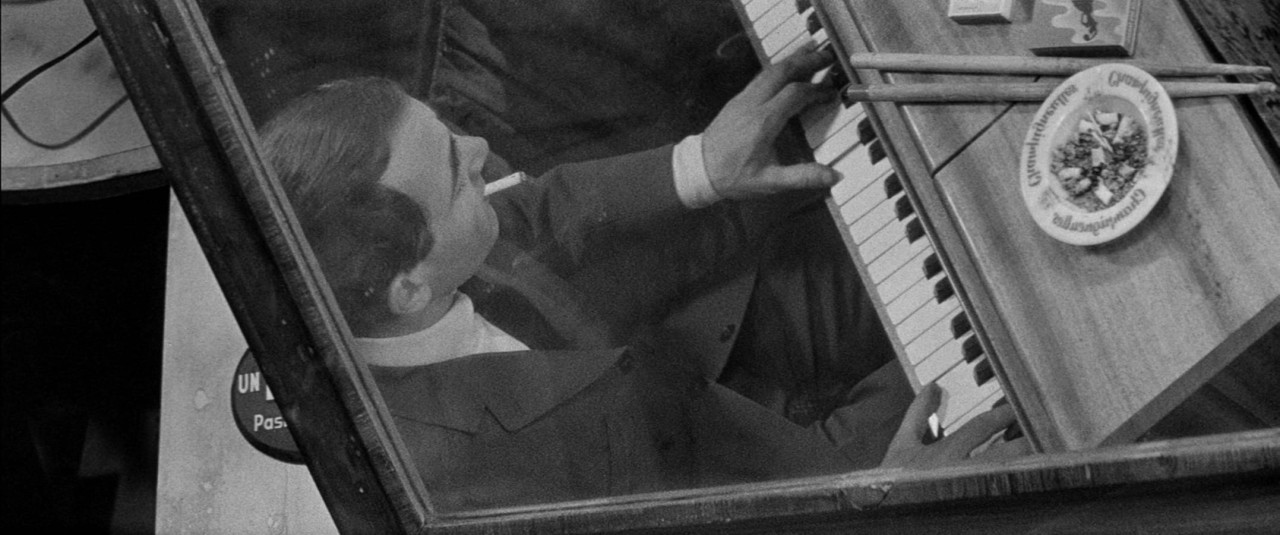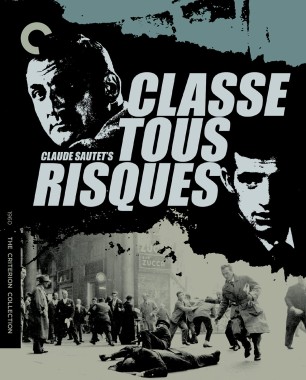Shoot the Piano Player

François Truffaut is drunk on the possibilities of cinema in this, his most playful film. Part thriller, part comedy, part tragedy, Shoot the Piano Player relates the adventures of mild-mannered piano player Charlie (Charles Aznavour, in a triumph of hangdog deadpan) as he stumbles into the criminal underworld and a whirlwind love affair. Loaded with gags, guns, clowns, and thugs, this razor-sharp homage to the American gangster film is pure nouvelle vague.
TWO-DVD SPECIAL EDITION FEATURES
- Restored high-definition digital transfer, supervised by director of photography Raoul Coutard
- Audio commentary by film scholars Annette Insdorf and Peter Brunette
- Interviews with actors Charles Aznavour and Marie Dubois and director of photography Raoul Coutard
- Rare interview with François Truffaut collaborator Suzanne Schiffman
- Two documentary excerpts featuring Truffaut on the film and the source novel
- The Music of George Delerue, an illustrated audio essay
- Dubois’ screen test
- Theatrical trailer
- PLUS: An essay by film critic Kent Jones, an interview with Truffaut, and the director on Aznavour and Dubois
Cover based on a theatrical poster
TWO-DVD SPECIAL EDITION FEATURES
- Restored high-definition digital transfer, supervised by director of photography Raoul Coutard
- Audio commentary by film scholars Annette Insdorf and Peter Brunette
- Interviews with actors Charles Aznavour and Marie Dubois and director of photography Raoul Coutard
- Rare interview with François Truffaut collaborator Suzanne Schiffman
- Two documentary excerpts featuring Truffaut on the film and the source novel
- The Music of George Delerue, an illustrated audio essay
- Dubois’ screen test
- Theatrical trailer
- PLUS: An essay by film critic Kent Jones, an interview with Truffaut, and the director on Aznavour and Dubois
Cover based on a theatrical poster

Cast
- Charles Aznavour
- Charlie Koller/Edouard Saroyan
- Marie Dubois
- Léna
- Nicole Berger
- Thérésa Saroyan
- Michèle Mercier
- Clarisse
- Serge Davri
- Plyne
- Claude Mansard
- Momo
- Daniel Boulanger
- Ernest
- Jean-Jacques Aslanian
- Richard Saroyan
- Richard Kanayan
- Fido Saroyan
- Claude Heymann
- Lars Schmeel
- Albert Rémy
- Chico Saroyan
Credits
- Director
- François Truffaut
- Cinematography
- Raoul Coutard
- Editing
- Claudine Bouché
- Editing
- Cécile Decugis
- From the novel “Down There” by
- David Goodis
- Adaptation by
- François Truffaut
- Adaptation by
- Marcel Moussy
- Producer
- Pierre Braunberger
- Music
- Georges Delerue
- Sound
- Jacques Gallois
- Production supervisor
- Serge Komor
- Production manager
- Roger Fleytoux
- Script girl
- Suzanne Schiffman


















